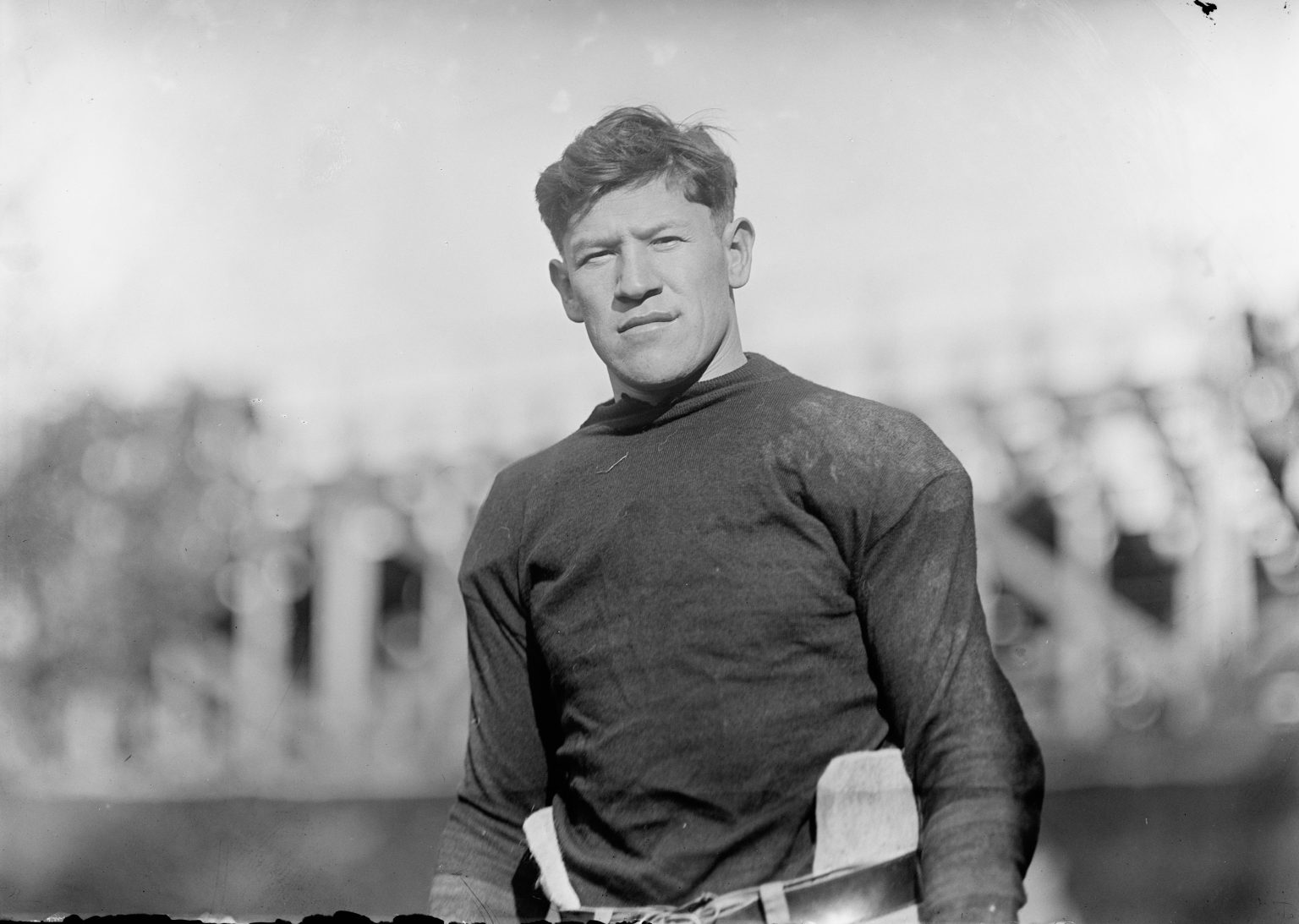Two-time Olympic gold medalist and Pro Football Hall of Fame member James Francis “Jim” Thorpe was born on May 28, 1888, in what is now Oklahoma. Raised on the Sac and Fox reservation by Hiram and Charlotte Vieux Thorpe, he was given the Native American name “Wa-tho-huck,” meaning “Bright Path.” Thorpe would go on to become one of the athletic superstars of the 20th century. In 1903, he moved to Pennsylvania to attend the Carlisle Indian School, where he excelled as an athlete under the coaching of Pop Warner. Thorpe’s foray into track and field began in 1907 when he saw the high jump team practicing and cleared the bar, setting the course for his future success.
Despite dropping out of Carlisle Indian School in 1909, Thorpe returned in 1911 and was named a football first-team All-American selection in 1911 and 1912. He competed in the 1912 Olympic Games, winning the decathlon and pentathlon, despite his shoes going missing during the competition. Thorpe’s performance in the 1500-meter run went unbroken for 60 years. King Gustav V of Sweden hailed Thorpe as the greatest athlete in the world, to which Thorpe humbly replied, “Thanks.” However, controversy arose when it was discovered that Thorpe had played semi-professional baseball prior to the Olympics, leading to his medals being stripped in 1913.
After the Olympics, Thorpe went on to play professional baseball and football. He played professional baseball from 1913 to 1919 for teams such as the New York Giants, Boston Braves, and Cincinnati Reds. During the baseball offseason, he played professional football and was signed to the Canton Bulldogs in 1915. The Canton Bulldogs claimed unofficial world championships in 1916, 1917, and 1919, with Thorpe playing and coaching. Thorpe’s remarkable skills and contributions to both sports led to his induction into the Pro Football Hall of Fame in 1963 and being named president of the National Football League in 1920.
Despite his achievements, Thorpe faced challenges, including the loss of his Olympic medals due to amateurism rules violations. However, in 2022, he was reinstated as the sole winner of the 1912 Olympic pentathlon and decathlon by the International Olympic Committee. Thorpe’s legacy continues to be honored through awards such as the “Jim Thorpe Award,” given to the top defensive back in college football since 1986. His impact on both track and field and American football solidified his status as one of the greatest athletes in history. Thorpe’s ability to run, pass, catch, kick, and tackle with skill and power left a lasting impression on the sports world, showcasing his extraordinary talent and versatility.
Though Jim Thorpe passed away in 1953, his story and contributions to sports remain a significant part of athletic history. His athleticism, sportsmanship, and determination continue to inspire athletes around the world. The reinstatement of his Olympic titles by the IOC in 2022 acknowledges his exceptional talent and the extraordinary impact he had on the world of sports. Jim Thorpe’s lasting legacy is a testament to his enduring influence on the world of athletics and his status as a true sports icon.













